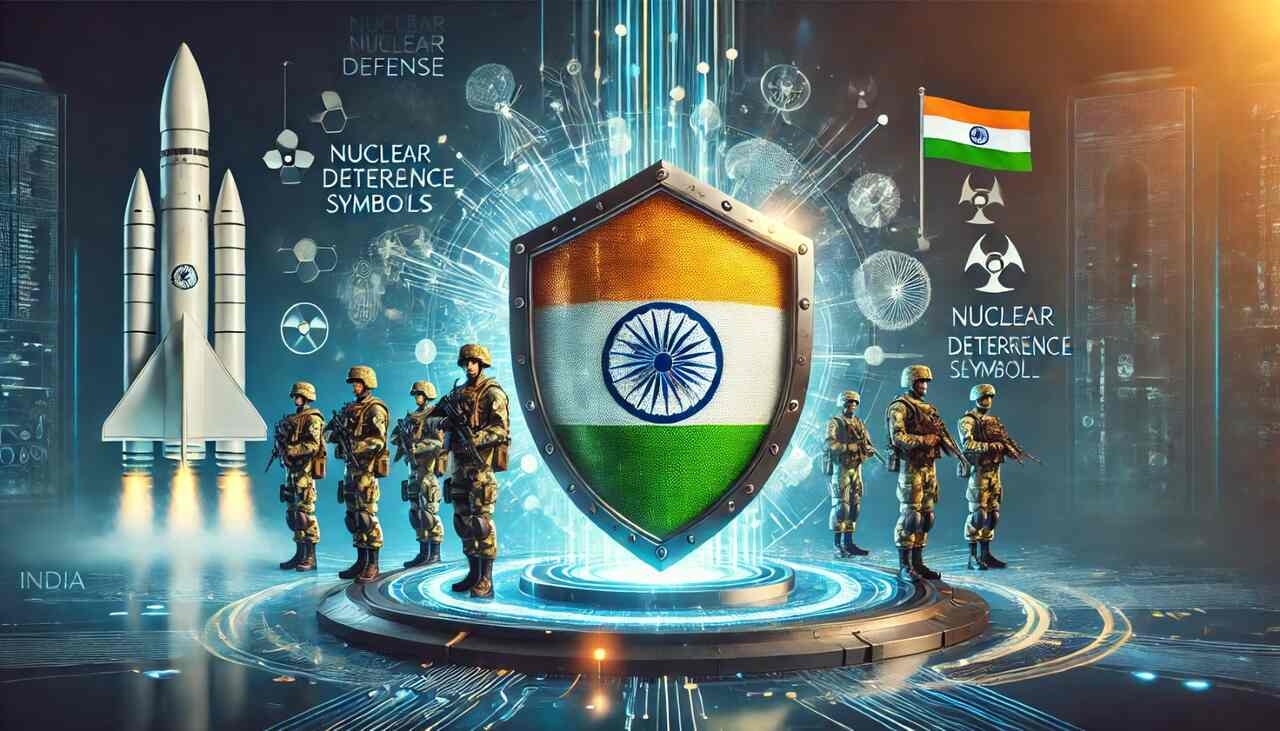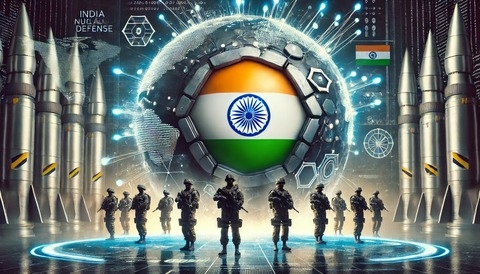A Nuclear Shield for National Security, A Beacon for Global Harmony

Alongside being, fourth-largest military spender globally, India for the first time in 25 years has surpassed Pakistan in nuclear weapon stock. As Indians, we can proudly assert that our nation is not only a nuclear power but also a responsible one.
Since declaring ourselves a nuclear power in 1998, we have consistently demonstrated our commitment to responsible nuclear stewardship. We owe a debt of gratitude to our visionary leaders, former Prime Minister Atal Bihari Vajpayee and Dr. Homi Bhabha, who have enabled India to emerge not only as a leader but also as the representative of the global south.
The Emergence of India's Nuclear Program
When India was on the verge of fighting for its existence, nations threatening us with nuclear power compelled us to conduct A Peaceful Nuclear Test: The Smiling Buddha test in 1974, showcasing our strength globally.
Although this move caught attention leading to thousands and thousands of sanctions, it was a really crucial era that made us aware of the importance and impact of nuclear power marking India's pursuit of self-reliant, highlighting its critical role in safeguarding national security and sovereignty.
Leadership Quotes and Visionary Statements
Echoing the courageous words of our visionary leader, Lal Bahadur Shastriji, "If someone tries to scare India at the point of a sword or with the fear of an atom bomb, we are not going to be scared." India developed nuclear capabilities solely for self-defense and deterrence.
While possessing nuclear capabilities, India still remains resolute in its commitment to promoting peace and harmony, by promoting the "No First Use" policy beyond borders, urging nations to adopt the same, paving the way for a safer world where diplomacy prevails and eventually fostering Global Disarmament in a long run.

Critique of the NPT: Discrimination and Power Dynamics
The mere critique of the treaty's discriminatory framework is the reason behind India's reluctance to assent to the NPT. The discriminatory nature of NPT allows only the Permanent Five to enjoy the privilege of possessing nuclear arsenals under international law while imposing restrictions on non-nuclear-weapon states (NNWS).
Critics argue that the NPT provides for a hierarchical order in which NWS are obligated to disarmament, at no fixed or specified rate which acts as a leverage for slow action, while NNWS are denied access to nuclear weapon technology. This view of the treaty’s provisions is inherently biased against non-signatories and is asymmetrical for countries like India.
Regional Dynamics
Historical rival, nuclear-armed Pakistan and China, a rising global power with expanding nuclear capabilities plays key role in the landscape in South Asia. These factors necessitate an approach to national security that includes maintaining a minimum credible deterrent against potential threats.
Security Calculus
The United States modernizing and expanding nuclear armament is evident by the B61-13 gravity bomb, carrying explosive power of 360 kilotons, twenty four more times than the power that was released by the Hiroshima is a development that is unsettling and deserves serious condemnation.
Such actions defy and compromise all efforts aimed at disarmament as well as nonproliferation and hence undermines international peace as well as security.
It is irresponsible to place priority on the improvement of nuclear weapons while disregarding diplomatic means for peaceful resolutions because these prompt resolute opposition from all over the world.
Echoes of History: Tensions in Cuba
In a striking echo of history, tensions rise as a Russian navy fleet, accompanied by a formidable nuclear-powered submarine and frigate, docks in Cuba. This reminiscent scene evokes memories of the 1962 Cuban Missile Crisis, igniting global concern over renewed geopolitical maneuvers and the implications for nuclear diplomacy.
In conclusion, the global proliferation and modernization of nuclear weapons, exemplified by developments like the B61-13 gravity bomb and rising tension between Russia and US, pose grave risks to international stability and undermine efforts toward disarmament and peace.
As nations continue to escalate their nuclear capabilities, it is crucial to prioritize dialogue, diplomacy, and cooperative security measures over militarization. The pursuit of peace demands collective commitment to reducing nuclear arsenals and preventing the resurgence of Cold War-era tensions.
Only through concerted global efforts can we build a safer future where the specter of nuclear conflict is minimized, and diplomatic solutions prevail over the threats of mass destruction.
Article by
-(1)_202502061251096038_H@@IGHT_191_W@@IDTH_340.jpg)
Kamal Mishra & Anushka Chourasia
Younginker